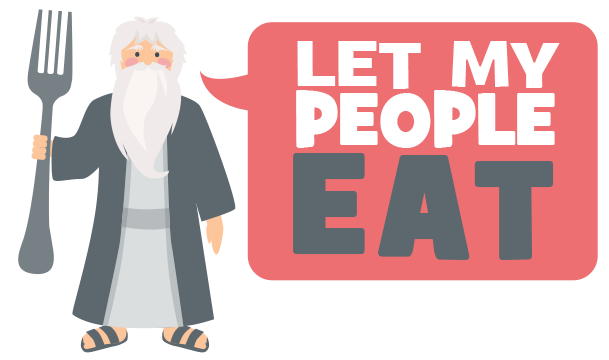
Welcome to 2019! Here are some kosher-trends that will experience a bigger upsurge this year. What do we need to know about them? Are they just a bunch of hype, or worth following?
1. The Techina Craze
Good news for techina lovers! The humble sesame-seed spread that penetrated the food industry over the last few years is here to stay. Following recent diet trends’ push for healthy fats and proteins, along with renewed fervor for Israeli and Middle Eastern flavors, the techina reign will go on.
Is the explosion of this Israeli favorite good news for the Jews?
For the most part, yes! Here’s why:
- The flavorful and versatile dish makes a great snack, paste, butter substitute, and a great base for cooking.
- It’s healthy, too! According to Medical News Today, most of the fats in techina are healthy unsaturated fats that are beneficial to the heart and overall health, and have cholesterol-lowering and cancer-blocking abilities.
Delicious and healthy as it is, don’t pack too much paste. Techina has 89 calories per tablespoon—so enjoy in moderation.
Some of our top-recommended techina products are:
Absolutely gluten-free TahiniBAR
2. The Faux Meat Fad
As dieters continue to reduce their meat intake due to health, or personal considerations, the vegan-based meat upsurge is expected to grow, according to The Nosher.
But are plant-based foods really a healthy meat alternative, or do perils lurk in the innocent-looking veggie burger?
Not all veggie meats are necessarily healthier than their meaty cousins. In an interview on the Global News site with dietitian Desiree Nielson, Nielson says, “They may be vegan, fortified with minerals or devoid of saturated fats or cholesterol, but they are also highly processed, (and) full of salt and refined ingredients as opposed to whole foods”.
Can we find a healthy medium between over-caution and overindulgence?
Here’s what the experts say:
- Enjoy vegan-based meats, but don’t make them your mainstay. Nielson suggests limiting store-bought faux meat products to two or three times a week.
- The key to finding the better products is in the ingredients. Desiree suggests scanning for whole food ingredients as opposed to soy and plant protein. Look out for those that are good sources of iron and zinc.
- In general, healthier, nutrition-dense whole food bases include tofu, tempe, legumes, quinoa, mushrooms, beans, whole vegetables, and wheat. Since not all bases are protein-heavy, and all have different nutrition content, choose your bases wisely.
Our top-recommended kosher, healthy vegan product:
Yves veggie Cuisine products
3. Sourdough is in Style
After years of naysaying the food staple, the probiotic trend is bringing old fashioned sourdough bread— made from dough that goes through a lengthy fermentation process—back.
Is the demand for sourdough just nostalgia over an artisan’s lost trade, or does it boast real health benefits?
It does! Here are some of the bread’s perks:
- It’s more nutritious than standard bread since it contains antioxidants and folate. The fermentation process also allows the body to absorb more of the bread’s minerals.
- The probiotics from acids in the fermenting process are good for your gut since they aid in food digestion.
- The acids slow down the rate that glucose is released into the bloodstream, which prevents sudden insulin spikes. This makes is it great bread substitute for anyone managing their blood glucose levels.
- According to Healthline.com, the fermenting process breaks down the gluten, a protein found in grains, which might make digestion more tolerable for those with a non-celiac, mild gluten sensitivity.
But, the lengthy production process does up the cost. You decide whether the benefits of good ol’ fashioned sourdough is worth the price tag.
Top-recommended product:
Wasa sourdough whole grain crispbread
These hot-on-the-market products do admittedly have health benefits. But always follow sensible health principles first, and the trends second.
Dreamy Tahini Sauce Recipe courtesy of Inspired Taste
PREP 10mins
TOTAL 10mins
Use this magical vegan tahini sauce as a dressing for salads, a sauce for vegetables and meats, a spread for sandwiches or a dip for just about anything. It’s very simple to make and is much more than the sum of its parts. Just delicious!
Makes approximately 1/2 cup
YOU WILL NEED
1/3 cup (80 ml) well stirred tahini
1 garlic clove minced very finely into a paste
2 tablespoons fresh lemon juice (about 1/2 a lemon)
1 tablespoon olive oil
1/4 teaspoon kosher salt
2 to 6 tablespoons lukewarm water
Pinch cumin, optional
Pinch cayenne, optional
1 tablespoon chopped fresh parsley, optional
DIRECTIONS
Whisk tahini, garlic paste, lemon juice, olive oil and the salt in a bowl until combined — the mixture will thicken, don’t worry about this.
Add the water, a tablespoon at a time and whisking well after each addition until desired consistency. If making a spread, look for the consistency of peanut butter. If making a sauce, add enough water until the consistency of runny yogurt. Stir in the optional cumin, cayenne pepper and parsley. Taste for seasoning and adjust with additional salt or lemon juice. Store covered in the refrigerator up to 5 days.
By: Bluma Gordon
Sources:
The Jewish Food Trends you’ll be seeing in 2019, The Nosher.com, https://www.myjewishlearning.com/the-nosher/the-jewish-food-trends-youll-be-seeing-in-2019/
What are the health benefits of Tahini, MedicalNewsToday.com
https://www.medicalnewstoday.com/articles/298585.php
Vegetarian and vegan ‘meats’ are more popular than ever, but are they good for you?
Vegan Meat Substitutes: The Ultimate Guide, Healthline.com
https://www.healthline.com/nutrition/vegan-meat-substitutes#section8
Why Sourdough Bread Is One of the Healthiest Breads, Healthline.com
https://www.healthline.com/nutrition/sourdough-bread
